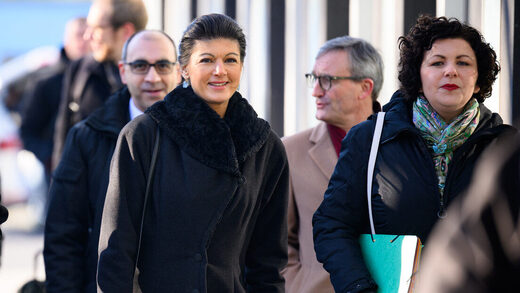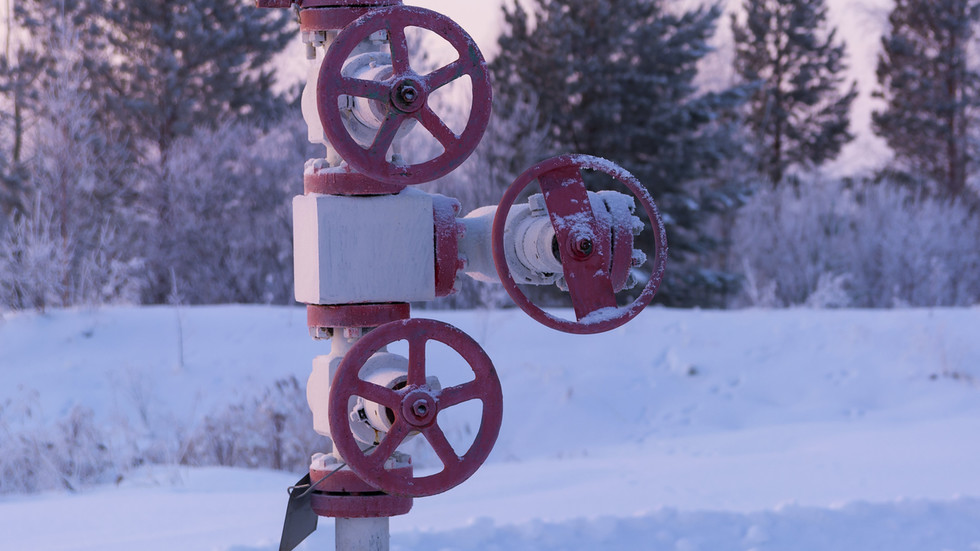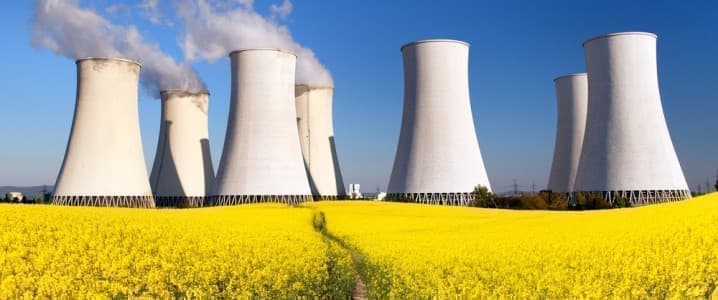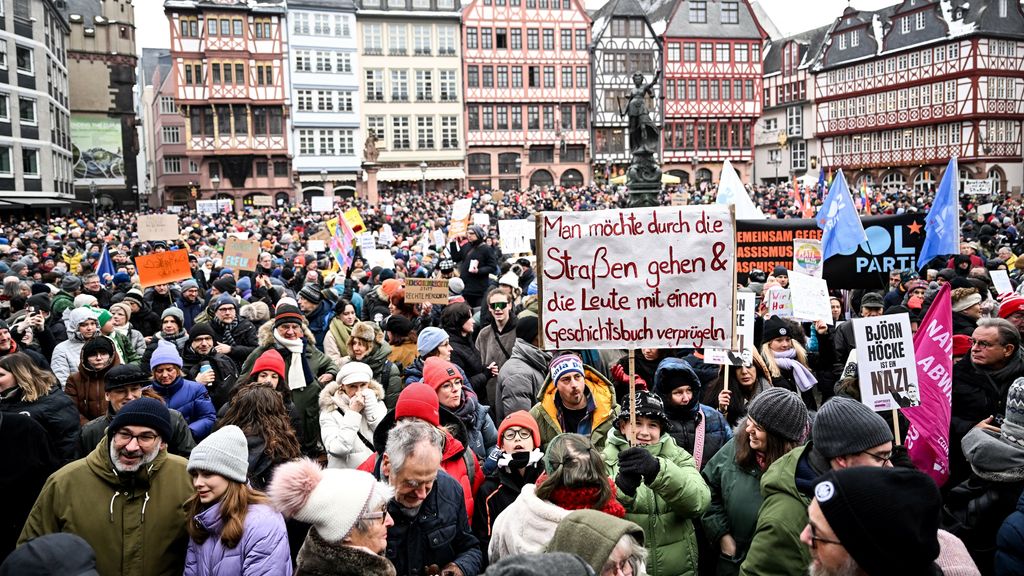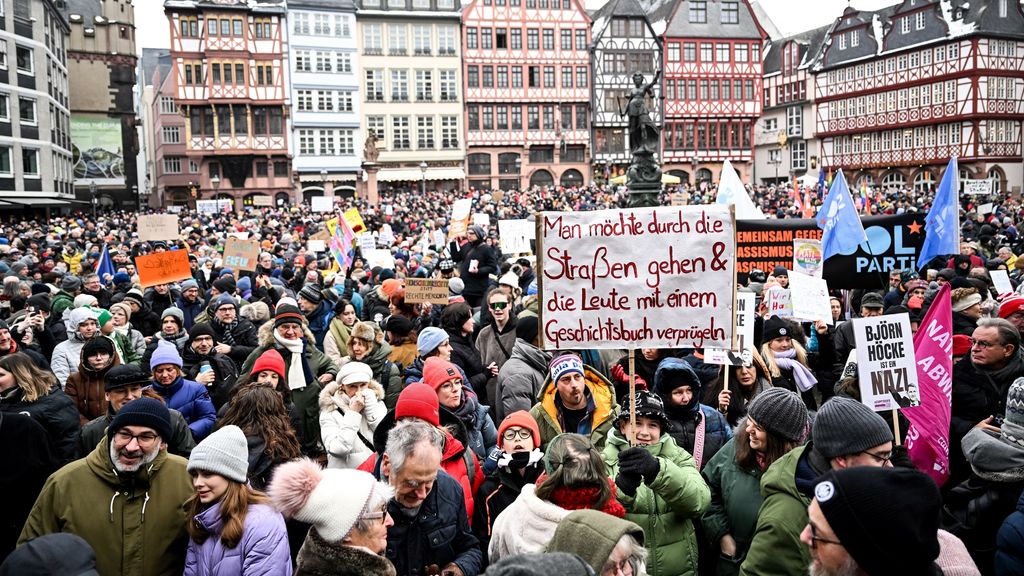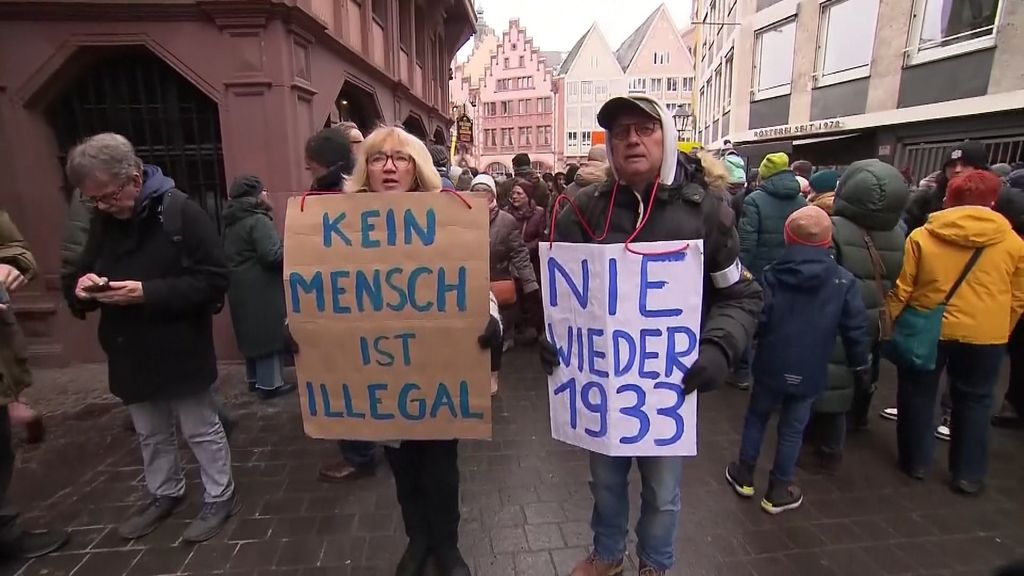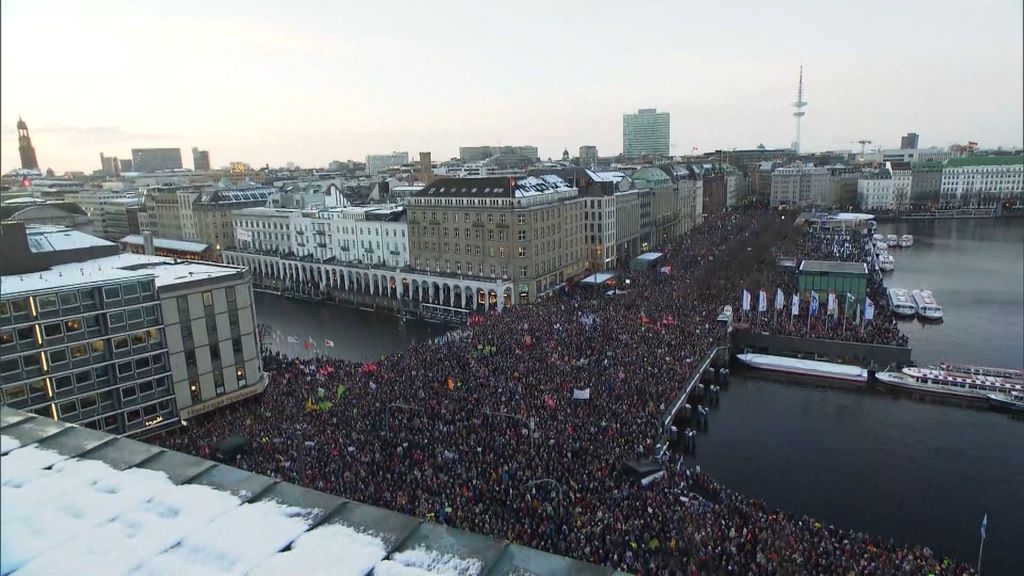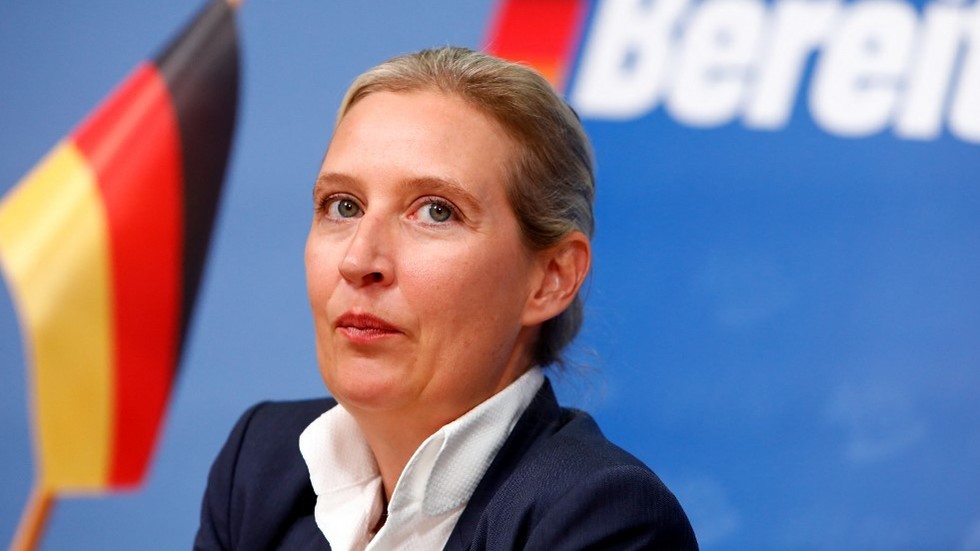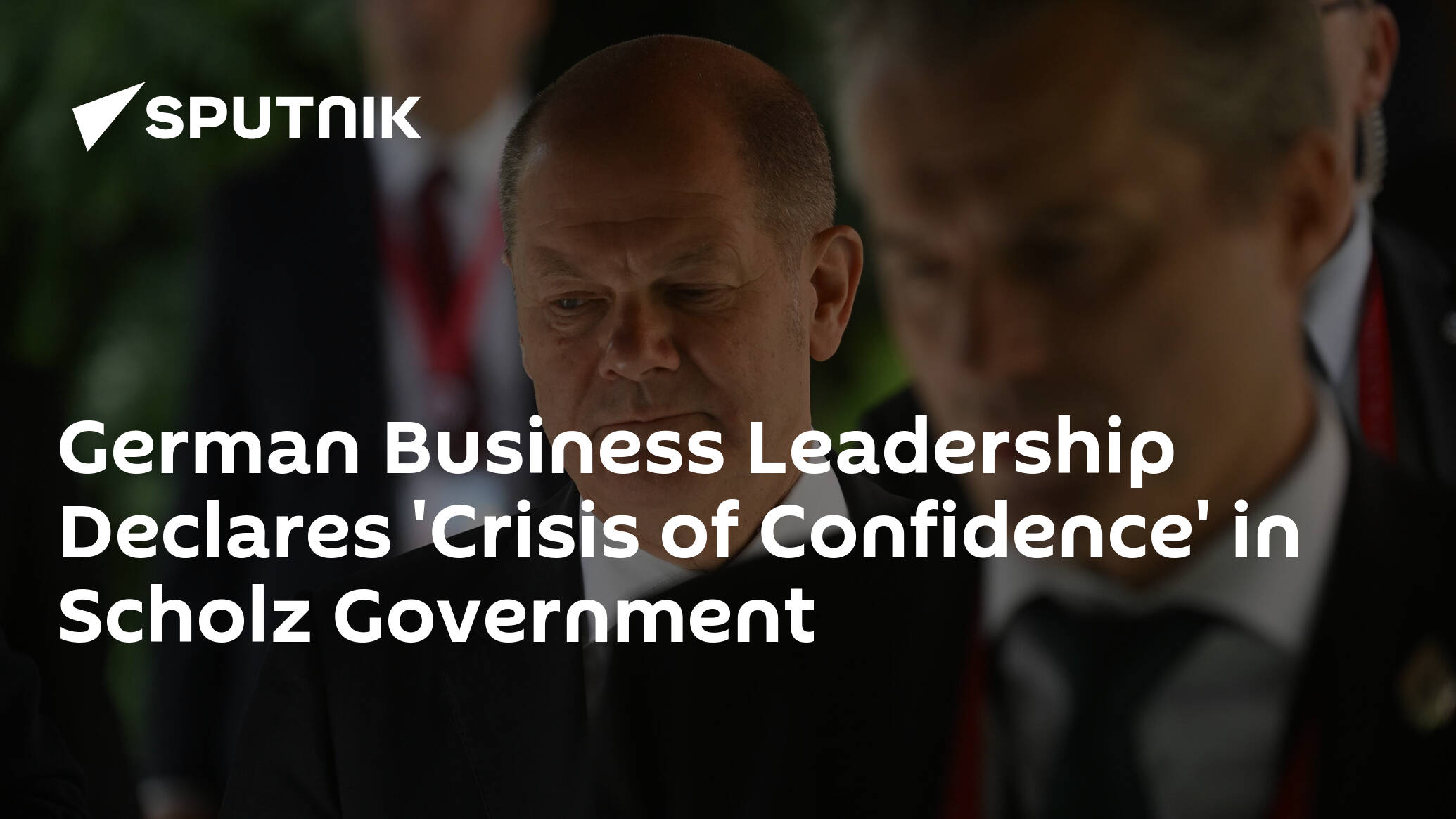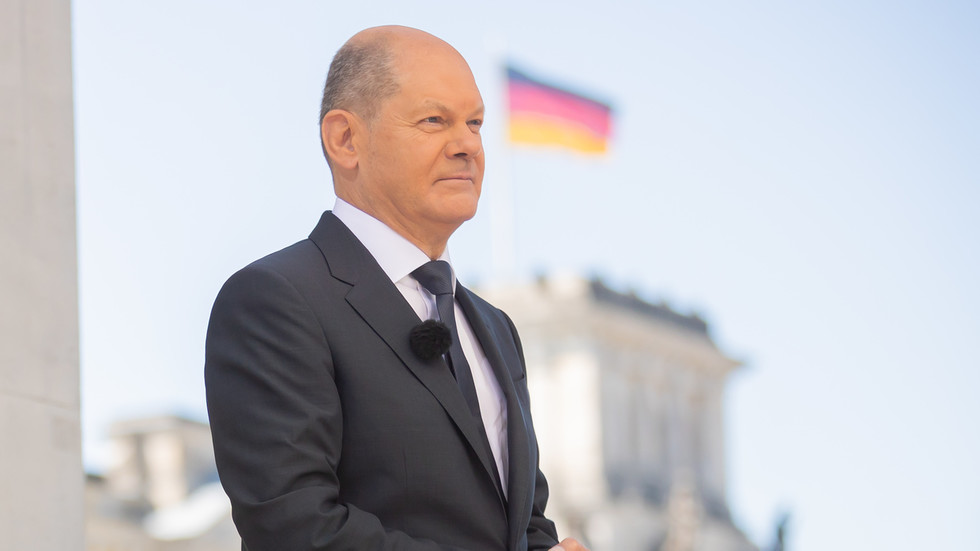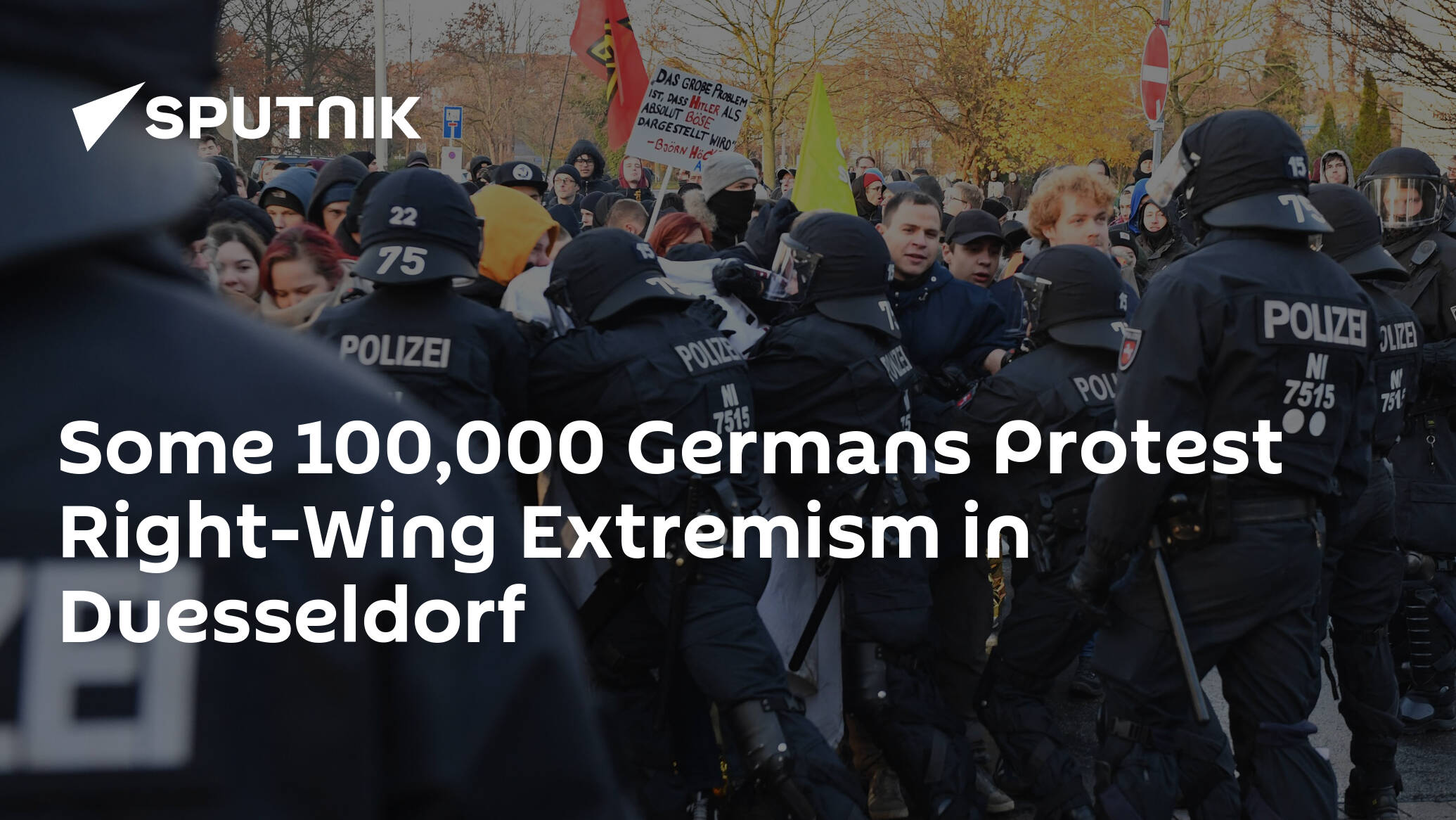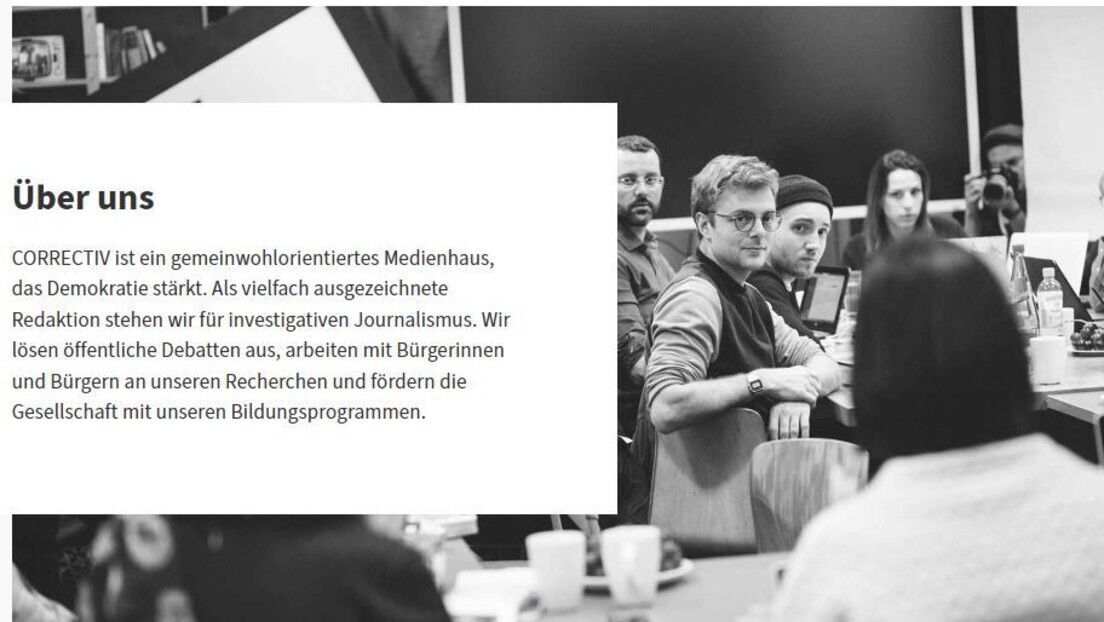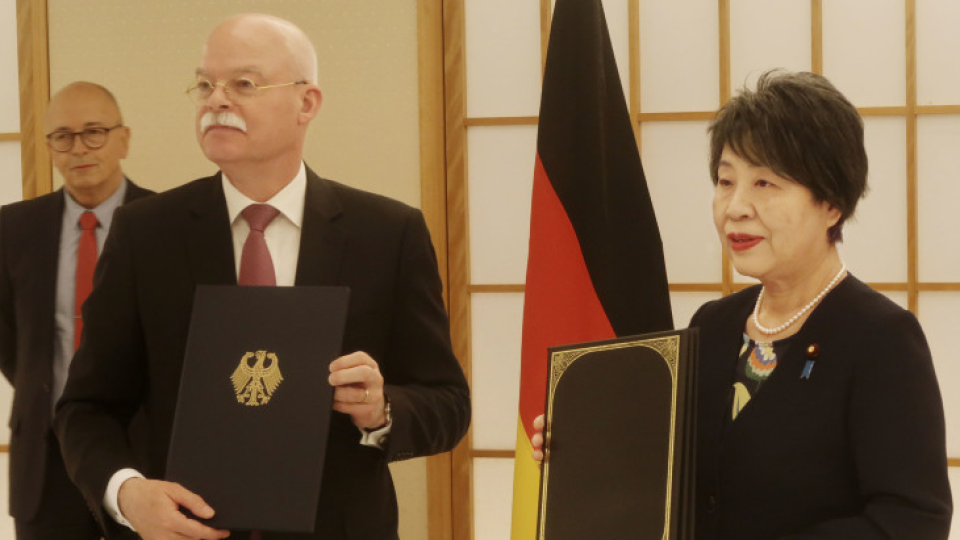Until very recently, I wouldn't have thought it possible to say: For the first time in a very long time I'll be voting in germany and the EU again! As shortly mentioned on the forum before: Sahra Wagenknecht has just established a new political party (called "BSW") in germany (and on the EU level!) that could change things drastically for the better in germany and the EU! For those who don't know, Sahra Wagenknecht is a very well known politician in germany and a master of politics that shouldn't be underestimated. Non-German speakers might have heard of her before over the years since some of her speeches and comments have been translated in other languages as well, including English. She is practically the only politician in germany with any significant say who has been consistent and sane on all important topics. For which she has been the target of defamation campaigns from the establishment, of course. Which hasn't diminished her popularity. In short, I can say that what has just happened is the most hopeful thing for germany and the EU I have seen, like, ever! Since she has such a broad appeal throughout all political camps/parties and layers of society in germany, she could very well soon come up on top!
The first important elections in which germans (and other countries in the EU?!) will be able to vote for her party will be in June, in the 2024 European Parliament elections, followed by important elections in east germany in the fall of this year. And of course the big election in the summer of 2025 will then follow: the german federal elections which will elect the next Bundestag and German chancellor. By the way, not so many people know it, but Wagenknechts husband is Oskar Lafontaine, who recently retired from politics and was a formidable heavyweight in german politics in his own right for many years. Lafontaine also advocated many similar positions over the years. He is the author of a number of books, including his most recent one, called, "Ami, it's time to go! A plea for Europe's self-assertion". Which surely isn't a coincidence...
German SOTT has published an article about Wagenknechts new party, which includes summaries and direct links to all their major positions, called "BSW: Wagenknecht's new party has already reached 21 per cent - BSW also competes in EU elections". What follows is the german original, followed by an English translation:
English translation:
The first important elections in which germans (and other countries in the EU?!) will be able to vote for her party will be in June, in the 2024 European Parliament elections, followed by important elections in east germany in the fall of this year. And of course the big election in the summer of 2025 will then follow: the german federal elections which will elect the next Bundestag and German chancellor. By the way, not so many people know it, but Wagenknechts husband is Oskar Lafontaine, who recently retired from politics and was a formidable heavyweight in german politics in his own right for many years. Lafontaine also advocated many similar positions over the years. He is the author of a number of books, including his most recent one, called, "Ami, it's time to go! A plea for Europe's self-assertion". Which surely isn't a coincidence...
German SOTT has published an article about Wagenknechts new party, which includes summaries and direct links to all their major positions, called "BSW: Wagenknecht's new party has already reached 21 per cent - BSW also competes in EU elections". What follows is the german original, followed by an English translation:
BSW: Wagenknechts neue Partei erreicht schon jetzt 21 Prozent - BSW tritt auch bei EU-Wahlen an
Philipos Moustaki
Sott.net
So, 14 Jan 2024 10:25 UTC
Die neue Partei "Bündnis Sahra Wagenknecht - Vernunft und Gerechtigkeit", kurz "BSW", hat sich nach ihrer Gründung am Montag auf der Bundespressekonferenz vorgestellt und beantwortete dabei zahlreiche Fragen der Journalisten über die Ausrichtung der Partei und ihre zukünftigen Pläne. In Deutschland will sich das BSW als neue Volkspartei etablieren, die auch in der EU-Ebene durch De Masio vertreten sein wird.
© www.globallookpress.com Bernd von Jutrczenka
8. Januar 2024, Berlin: Sahra Wagenknecht (2.v.l.) und Amira Mohamed Ali (r.) zusammen mit Shervin Haghsheno (l.) und Thomas Geisel (2.v.r.) bei der Vorstellung des Bündnisses Sahra Wagenknecht – für Vernunft und Gerechtigkeit (BSW) in der Bundespressekonferenz.
Das Bündnis Sahra Wagenknecht (BSW) wird fortan von einer Doppelspitze geleitet: Amira Mohamed Ali wird zusammen mit der Namensgeberin der neu gegründeten Partei vorstehen. Das sagte Mohamed Ali am Montag in der Bundespressekonferenz in Berlin. Als Generalsekretär wurde der Bundestagsabgeordnete Christian Leye vorgestellt - wie die Bundestagsabgeordnete Mohamed Ali gehörte er zuvor der Partei Die Linke an. Stellvertretender Vorsitzender des BSW ist der Unternehmer und Hochschulprofessor Shervin Haghsheno.
Bei der Europawahl am 9. Juni sollen der frühere Linkenpolitiker und Finanzfachmann Fabio De Masi und der frühere Düsseldorfer SPD-Oberbürgermeister Thomas Geisel für das BSW antreten. Dieser hatte am Sonntag seinen Austritt aus der SPD beantragt. Im Herbst will die neue Partei bei den drei Landtagswahlen in Ostdeutschland antreten.
~ de.rt.com
Anders als von einigen Medien suggeriert wurde, wird sich die Partei nach Angaben von Wagenknecht nach den Bundestagswahlen im nächsten Jahr umbenennen. Die derzeitige Auswahl des Namens begründet Wagenknecht verständlicherweise mit der Tatsache, dass man ihren Namen und ihre Standpunkte kennt und die Bürger somit ihre Partei zu Anfang schneller und einfacher auf den Wahlzetteln finden können. Erste Umfragen offenbaren bereits: 21 Prozent der Befragten könnten sich bei der nächsten Bundestagswahl für die Partei entscheiden.
Bei der Pressekonferenz kamen viele Themen zur Sprache. Das BSW scheint bei allen wichtigen Themen gemäßigte und besonnene Ansichten zu vertreten. Es folgt eine kurze, detaillierte Zusammenfassung der Pressekonferenz. Jeder Hyperlink führt direkt zur Thematik im Video:
- Nach Angaben von Frau Wagenknecht sind Labels wie "links" oder "rechts" Dinge, die heute nur noch selten einer nuancierten Betrachtungsweise standhalten und deshalb von dem BSW nicht genutzt werden.
- Die Deutsche Gesellschaft wird durch den Inhalt der gegenwärtigen Politik polarisiert und gespalten und nicht durch Diskurs, oder, Zitat, "das Wetter".
- In Sachen Europawahl und EU ist für das BSW "weniger mehr"
- Asylrecht in Deutschland, Immigration, Obergrenzen und die Zahlen diesbezüglich
- Bauernproteste und Proteste im Allgemeinen in Deutschland
- Ukraine, Flüchtlinge und Russland
- Die bevorstehenden Wahlen in Ostdeutschland
- Die Geschehnisse in Gaza und Israel
- Corona, Covidmaßnahmen und die Coronazeit
- Der Klimawandel und Klimapolitik. Initiativen in Bezug auf das Thema müssen laut Wagenknecht mit Ehrlichkeit geschehen und nicht auf Basis einer, Zitat, "wünsch dir was Welt". Klimapolitik solch sich an dem Machbaren, realistischen und Rationalen orientieren; an den heutigen Technologien und dem technologisch Machbaren. Dabei spricht sich Wagenknecht dagegen aus, wichtige Technologien wie den Verbrennermotor zu verbieten und stattdessen Arbeitsplätze in Deutschland zu erhalten und verbrauchsärmere Motoren zu entwickeln. Dabei könnte man für das globale Klima und vor allem für die deutsche Wirtschaft deutlich mehr erreichen, da die Anzahl der Verbrennermotoren weltweit zunehmen wird. Ferner kritisiert Wagenknecht das neue Wärmegesetz und stellt die Frage, warum stattdessen nicht kommunale Infrastrukturen verbessert werden, die unter anderem auch Fernwärme ermöglichen könnten. Wichtiges Geld wird für den Einbau von Wärmepumpen verpulvert, während realistische und nachhaltige Möglichkeiten ignoriert werden. Die Maut für LKWs wird erhöht, um damit angeblich "Klimaneutralen" Güterverkehr zu bevorzugen: Laut Wagenknecht ist diese Maßnahme völlig Absurd, während das E-Auto für den LKW Verkehr nicht sinnvoll ist. Sinnvoll wäre laut Wagenknecht, stattdessen mehr Güter auf die Schiene zu verlagern. Aber die staatseigene Bahn hat in den vergangenen Jahren massiv ihre Kapazitäten zum Gütertransport abgebaut! Das zeigt laut Wagenknecht wieder die völlig irrationale Politik, die gegenwärtig dem Land aufgezwungen wird. Sinnvolle Klimapolitik unterscheiden laut Wagenknecht von einer ideologiegetriebenen Klimapolitik und das BSW steht für eine Klimapolitik, die sich an den heutigen Technologien und dem technologisch und rational machbaren orientiert.
- Das BSW äußert sich zu Bürgergeld, Bedingungsloses Grundeinkommen, Arbeitslosenversicherung, Langzeitarbeitslosigkeit, vernünftige Löhne, Sozialstaat und dergleichen: Eine Arbeitslosenversicherung sollte so gestaltet sein, dass langjährig Versicherte geschützt sind, bevor sie überhaupt ins Bürgergeld kommen. Das BSW ist gegen ungerechtes Verhalten gegenüber Arbeitnehmern in Bezug auf das, was sie schon geleistet haben und was sie im Falle von Erwerbslosigkeit erwarten können, im Vergleich zu denjenigen, die das nicht aufzuweisen haben.
- Subventionen
- Renten
- Mieten
- Sozialismus und Debattieren in Deutschland
- Syrien
- Die Cum-Ex Affäre
- Gesundheitswesen
- Die Partei BSW soll kontrolliert und langsam wachsen
English translation:
BSW: Wagenknecht's new party has already reached 21 percent - BSW also competes in EU elections
Philipos Moustaki
Sott.net
So, 14 Jan 2024 10:25 UTC
The new party called "Alliance Sahra Wagenknecht - Sanity and Justice", or "BSW" for short, presented itself at the Federal Press Conference on Monday after its foundation and answered numerous questions from journalists about the party's orientation and its future plans. In Germany, BSW wants to establish itself as a new people's party that will also be represented at EU level by De Masio.
© www.globallookpress.com Bernd von Jutrczenka
8 January 2024, Berlin: Sahra Wagenknecht (2nd from left) and Amira Mohamed Ali (right) together with Shervin Haghsheno (left) and Thomas Geisel (2nd from right) at the presentation of the Alliance Sahra Wagenknecht - Sanity and Justice (BSW) at the Federal Press Conference.
The Alliance Sahra Wagenknecht (BSW) will now be led by a dual leadership: Amira Mohamed Ali will head the newly founded party together with the party's namesake. Mohamed Ali made the announcement at the Federal Press Conference in Berlin on Monday. Member of the Bundestag Christian Leye was introduced as Secretary General - like Mohamed Ali, he previously belonged to the Left Party. The deputy chairman of the BSW is entrepreneur and university professor Shervin Haghsheno.
In the European elections on 9 June, former Left Party politician and financial expert Fabio De Masi and former Düsseldorf SPD mayor Thomas Geisel are to stand for the BSW. The latter had applied for his resignation from the SPD on Sunday. The new party intends to contest in the three state elections in eastern Germany in the autumn of this year.
~ de.rt.com
Contrary to what some media have suggested, Wagenknecht says the party will change its name after next year's federal elections. Wagenknecht understandably justifies the current choice of name with the fact that people know her name and her views, making it quicker and easier for citizens to find her party on the ballot papers at the beginning. Initial surveys have already revealed that 21 percent of respondents could vote for the party in the next general election for chancellorship.
Many topics were discussed at the press conference. The BSW seems to have moderate and level-headed views on all important topics. The following is a short, detailed summary of the press conference. Each hyperlink leads directly to the topic in the video:
- According to Mrs Wagenknecht, labels such as "left" or "right" are things that rarely stand up to nuanced scrutiny these days and are therefore not used by the BSW.
- German society is polarized and divided by the content of current politics and not by discussions or, quote, "the weather".
- When it comes to the European elections and the EU, "less is more" for the BSW
- Asylum law in Germany, immigration, upper limits and the numbers in this regard
- Farmer protests and protests in general in Germany
- Ukraine, refugees and Russia
- The upcoming elections in East Germany
- The events in Gaza and Israel
- Corona, Covid measures and the corona period
- Climate change and climate policy. According to Wagenknecht, initiatives relating to the issue must be made with honesty and not on the basis of a, quote, "make a wish world". Climate policy should be based on what is feasible, realistic and rational; on today's technologies and what is technologically feasible. Wagenknecht is against banning important technologies such as the combustion engine and instead wants to preserve jobs in Germany and develop more fuel-efficient engines. This could achieve significantly more for the global climate and, above all, for the German economy, as the number of combustion engines will increase worldwide. Wagenknecht also criticizes the new heating law and asks why municipal infrastructures, which could also enable district heating, are not improved instead. Important money is being squandered on the installation of heat pumps, while realistic and sustainable options are being ignored. The toll for lorries is being increased in order to give preference to supposedly "climate-neutral" freight transport: according to Wagenknecht, this measure is completely absurd, while an e-car makes no sense for lorry traffic. According to Wagenknecht, it would make more sense to shift more freight to rail instead. But the state-owned railway has massively reduced its freight transport capacity in recent years! According to Wagenknecht, this again shows the completely irrational policy that is currently being imposed on the country. According to Wagenknecht, sensible climate policy differs from an ideology-driven climate policy and the BSW is in favor of a climate policy that is based on today's technologies and what is technologically and rationally feasible.
- The BSW comments on citizens' income, unconditional basic income, unemployment insurance, long-term unemployment, reasonable wages, the welfare state and the like: Unemployment insurance should be designed in such a way that people who have been insured for many years are protected before they even come into the citizen's income. The BSW is against unfair behavior towards employees in terms of what they have already achieved and what they can expect in the event of unemployment compared to those who have not.
- Subsidies
- Pensions
- Rents
- Socialism and debating in Germany
- Syria
- The cum-ex affair
- Healthcare
- The BSW party wants to grow slowly and in a controlled manner
Last edited:

